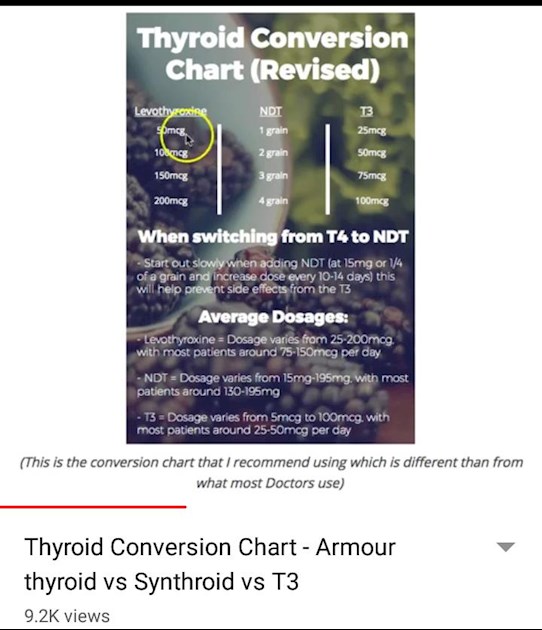I have been on 100mcg of levothyroxine for years and whilst some of my symptoms improved, I really wanted a better quality of life, as many do with hypothyroidism!
I've been scrolling the internet for conversions from levo to NDT as I've just made the switch, but I struggled to find anything helpful.
I've got to 1.25 grains of Thai Thiroyd over the past 2 weeks and many symptoms have improved apart from severe hip joint and back pain so I've been furiously searching the internet.
Ive come across a video on YouTube by Dr Weston Childs, a doctor who has treated many thyroid patients.
From vast experience, he suggests that:
50mcg levothyroxine equals 1 grain NDT
100mcg levothyroxine equals 2 grains NDT
and so on......
His advice is to start on 0.25 grains and up it by 0.25 every 10 days to 2 weeks until on the required dose.
I'll update this post in 4 weeks when I'm on 2 grains to hopefully tell you all that it's worked 😁
